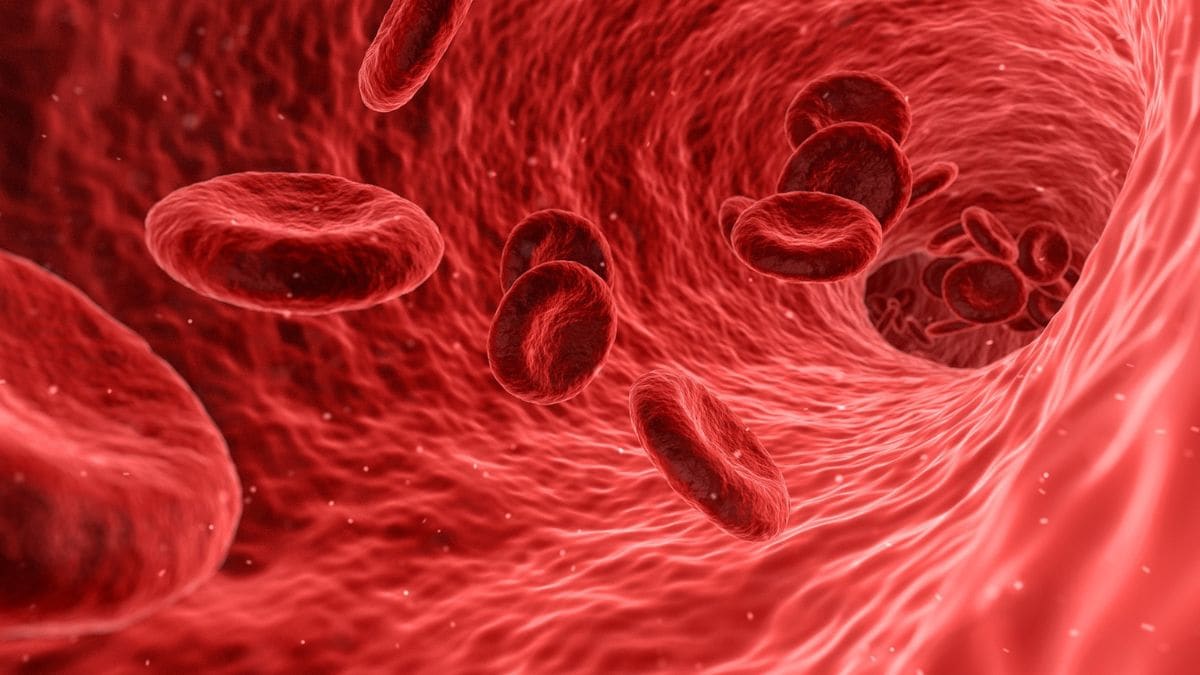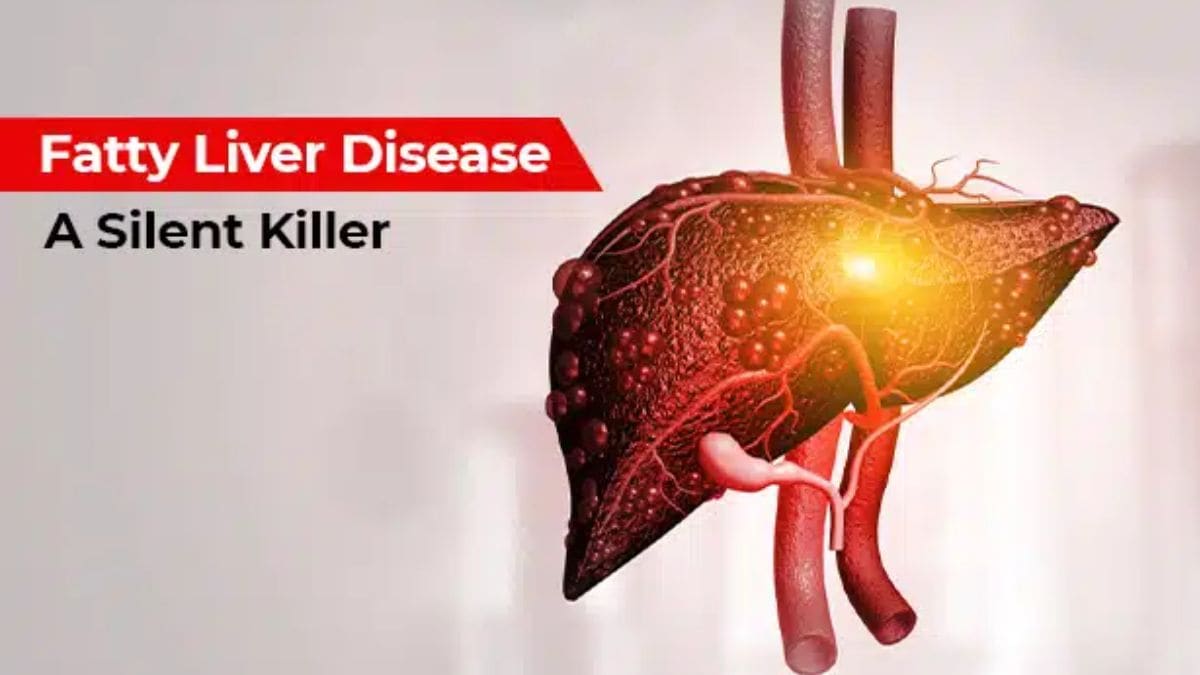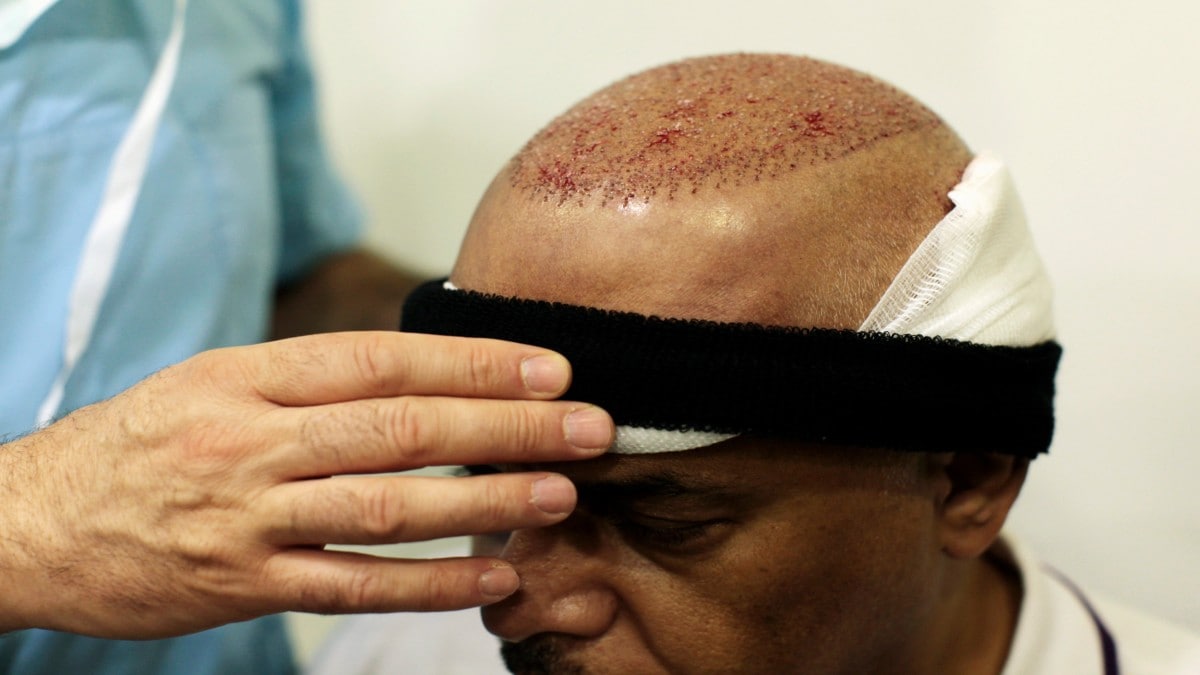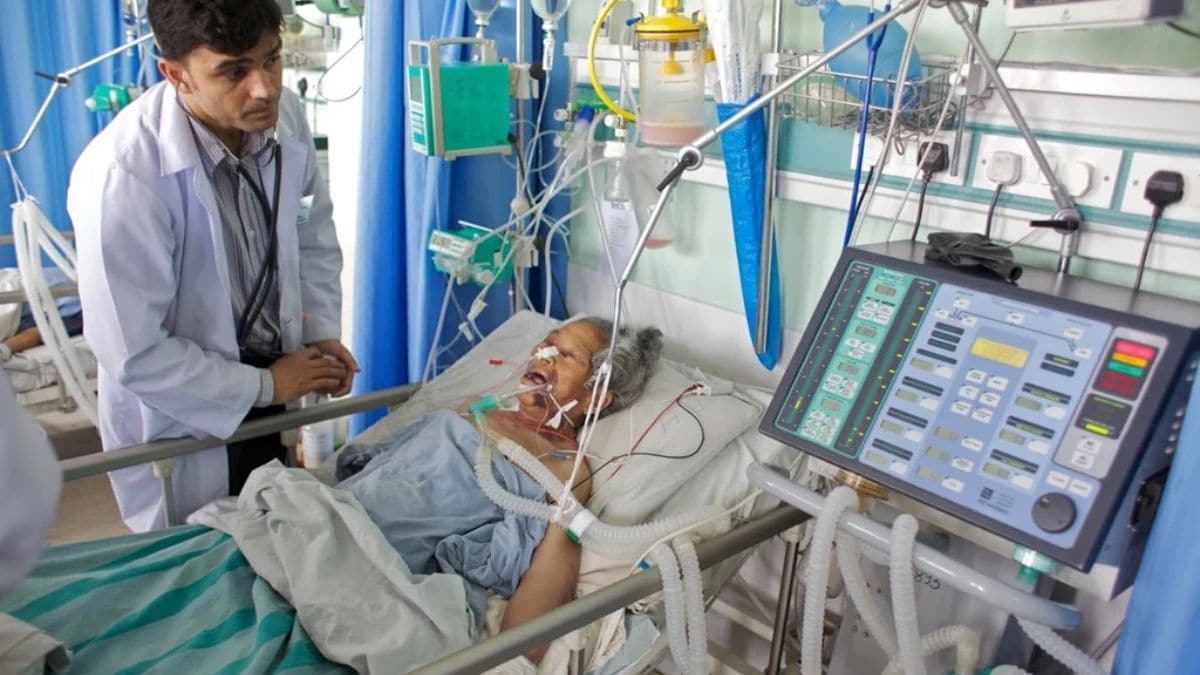Parts of India are grappling with extreme heat. Across the world too, temperatures are soaring, making people sweat profusely. Amid these rising temperatures, everyone seems to be asking — how hot is too hot? And what happens to the human body then? The answer, surprisingly, isn’t limited only to the thermometer; it has much to do with humidity. Here’s what you need to know read more
)
Women wipe the sweat from their faces as they wait for bus on a hot and humid summer day in Mumbai, India. A persistent heatwave has left people in India and in other parts of the world sweating and sweltering. AP
It’s hot in India — this feels like an understatement. A persistent heatwave has enveloped parts of India, mainly in the north, with Rajasthan’s Phalodi recording a whopping 50 degrees Celsius on Sunday, 26 May.
A red alert has been sounded off by India’s weatherman, the Indian Meteorological Department (IMD), for Rajasthan, Punjab, Haryana, Chandigarh, Delhi , west, Uttar Pradesh, and Gujarat. People in these states have been asked to take necessary precautions to protect themselves from the severe heat. Even Maharashtra is sweltering in the heat, with officials in the city of Akola even imposing Section 144 of the Criminal Procedure Code (CrPC) until 31 May due to possible heatwave conditions in the city.
Even across the world, countries like Pakistan and parts of the United States are experiencing extremely hot weather.
The current conditions have got many asking: How hot is too hot? And what will happen if the heat becomes too much for the body to handle?
How hot is too hot?
Experts note that the answer to this question goes beyond the temperature you see on the thermometer. It has a lot to do with humidity and the ‘wet bulb’ temperature. The wet bulb temperature is a meteorological term used to describe the lowest temperature that can be reached by evaporating water into the air at constant pressure. This temperature helps measure humidity and understand how much water can evaporate into the air, affecting things like comfort, farming and weather patterns.
According to a 2014 study by Ollie Jay, of the Thermal Ergonomics Laboratory at the University of Sydney, a person who is at rest, wearing minimal clothing, in a very dry room — 10 per cent relative humidity — and drinking water constantly could probably avoid overheating in temperatures as high as 115 degrees Fahrenheit or 46.1 degrees Celsius.
Another study in 2021 stated that once the air temperature hits 122 degrees Fahrenheit, 50 degrees Celsius, the human body can no longer dissipate heat and our core temperature rises.
However, a more recent study has stated that the hottest temperature a human body can endure is a wet-bulb temperature of 95 degrees Fahrenheit (35 degrees Celsius). Here’s an example of wet bulb temperature and air temperature. When the air temperature is 46.1 degrees Celsius with a relative humidity of 30 per cent, the wet bulb temperature is 30.5 degrees Celsius. But when the air temperature is 38.9 C and the relative humidity is 77 per cent, the wet-bulb temperature is about 35 C.
Researchers have said that the more humid the environment, the harder for the body to process heat. They found that with more water in the air, it’s harder for sweat to evaporate off the body and cool a person down.
They found that people can’t survive at high heat and humidity because they can’t regulate their body temperature. As Colin Raymond, a postdoctoral researcher at NASA’s Jet Propulsion Laboratory who studies extreme heat, told Live Science, “If the wet bulb temperature rises above the human body temperature, you can still sweat, but you’re not going to be able to cool your body to the temperature that it needs to operate at physiologically.”
It’s important to note that a wet bulb temperature of 35 degrees Celsius won’t cause immediate death. Studies have pointed out that such a temperature spread across three hours or so would make it unsurvivable.
Also read: How do heatwaves affect India’s economy?
What happens in ‘too hot’ conditions?
When the wet bulb temperature runs too high, people’s resting metabolic rate — the amount of energy needed to function at rest — increases.
According to medical experts, people may start to breathe more heavily and their heart rates can go up. Once a person’s body can no longer get rid of excess heat — a condition known as “heat stress” — the core temperature rises. That can result in confusion, nausea, dizziness, headache or fainting.
Lewis Halsey, a professor of life and health sciences at the University of Roehampton in England, who also conducted a study on how much heat can the human body endure, told NBC News: “People are typically quite good at acclimating to heat, up to a point.”
However, once a body can no longer process the heat, it will denature proteins and cause irreparable damage to brain. As an India Today report said, “the human body can turn into a scrambled egg.”
However, it’s important to note here again that this may happen only over a period of time. It is not an immediate effect.
Studies have already shown how extreme temperature s can affect almost every part of the human body. It has been found that as temperatures rise, your brain can struggle to process information. That drop in cognitive function can impair judgement, and puts people at risk of falling or injuring themselves. In extreme cases, high heat can even cause dangerous brain inflammation.
Apart from the brain, even the heart is affected. Stephen Cheung, a senior research fellow at Brock University in St. Catharines, Ontario said that’s because more blood is trapped out in the skin as your body tries to cool itself. “What happens is that it places greater strain on your heart because now it has less blood coming back, and it has to work harder to pump that blood out to the rest of the body,” he said to CBC News.
Extreme heat also is found to affect the kidneys and the lungs.
How to protect yourself?
One can’t do much to control the temperature but one can take precautions to protect oneself. First and foremost, stay hydrated, including with electrolytes if needed. The body sweats out a lot of salt and minerals, and if you drink a lot of water but don’t replace these depleted minerals, the body can experience other complications.
Moreover, reduce the temperature in your location, by taking cool baths, eating cold foods, and wearing lighter-weight clothes. Use the air conditioning when feeling uncomfortably hot. However, this may be counterintuitive, as some experts note that an extensive use of air conditioning would reduce people’s capacity to cope without it.
There are other sustainable strategies too. But countries and governments have to take measures at a larger scale to ensure that extreme heat driven by climate change is curbed.
With inputs from agencies

 3 months ago
12
3 months ago
12


















)
)
)
)
)
)
)
 English (US) ·
English (US) ·